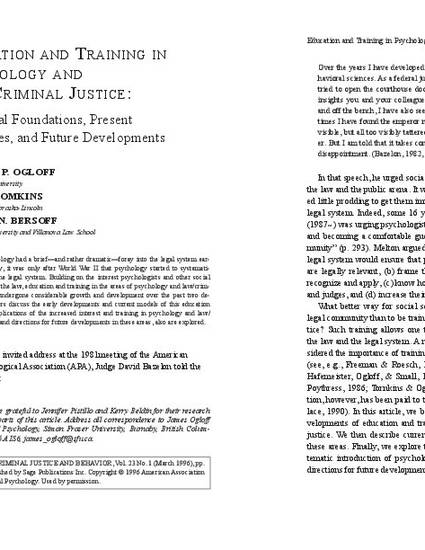
Other
EDUCATION AND TRAINING IN PSYCHOLOGY AND LAW/CRIMINAL JUSTICE: Historical Foundations, Present Structures, and Future Developments
Alan Tomkins Publications
Date of this Version
3-20-1996
Disciplines
Comments
Published in CRIMINAL JUSTICE AND BEHAVIOR, Vol. 23 No. 1 (March 1996), pp.
200-235. Published by Sage Publications Inc. Copyright © 1996 American Association
for Correctional Psychology. Used by permission.
Abstract
Although psychology had a brief—and rather dramatic—foray into the legal system early in this century, it was only after World War II that psychology started to systematically permeate the legal system. Building on the interest psychologists and other social scientists had on the law, education and training in the areas of psychology and law/criminal justice has undergone considerable growth and development over the past two decades. The authors discuss the early developments and current models of this education and training. Implications of the increased interest and training in psychology and law/ criminal justice, and directions for future developments in these areas, also are explored.
Citation Information
James R. P. Ogloff, Alan Tomkins and Donald N. Bersoff. "EDUCATION AND TRAINING IN PSYCHOLOGY AND LAW/CRIMINAL JUSTICE: Historical Foundations, Present Structures, and Future Developments" (1996) Available at: http://works.bepress.com/alan_tomkins/24/
